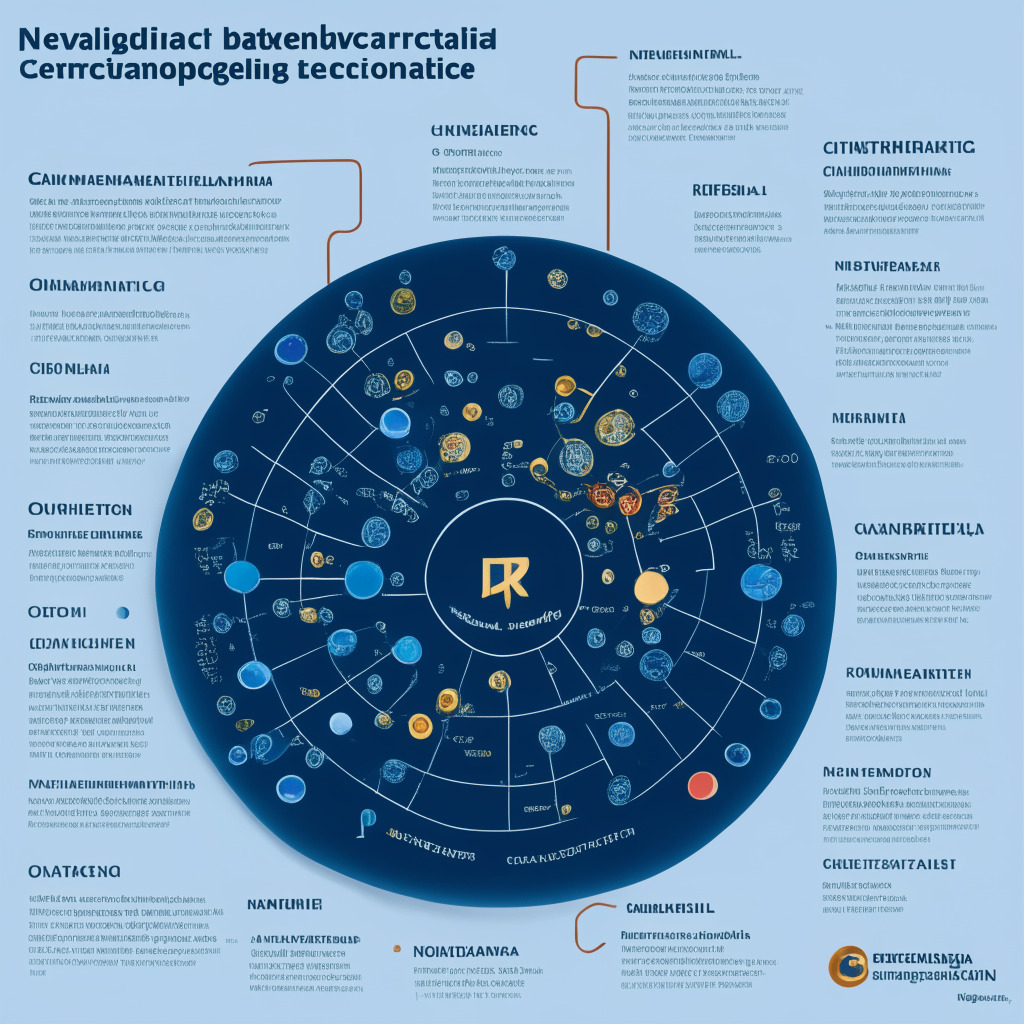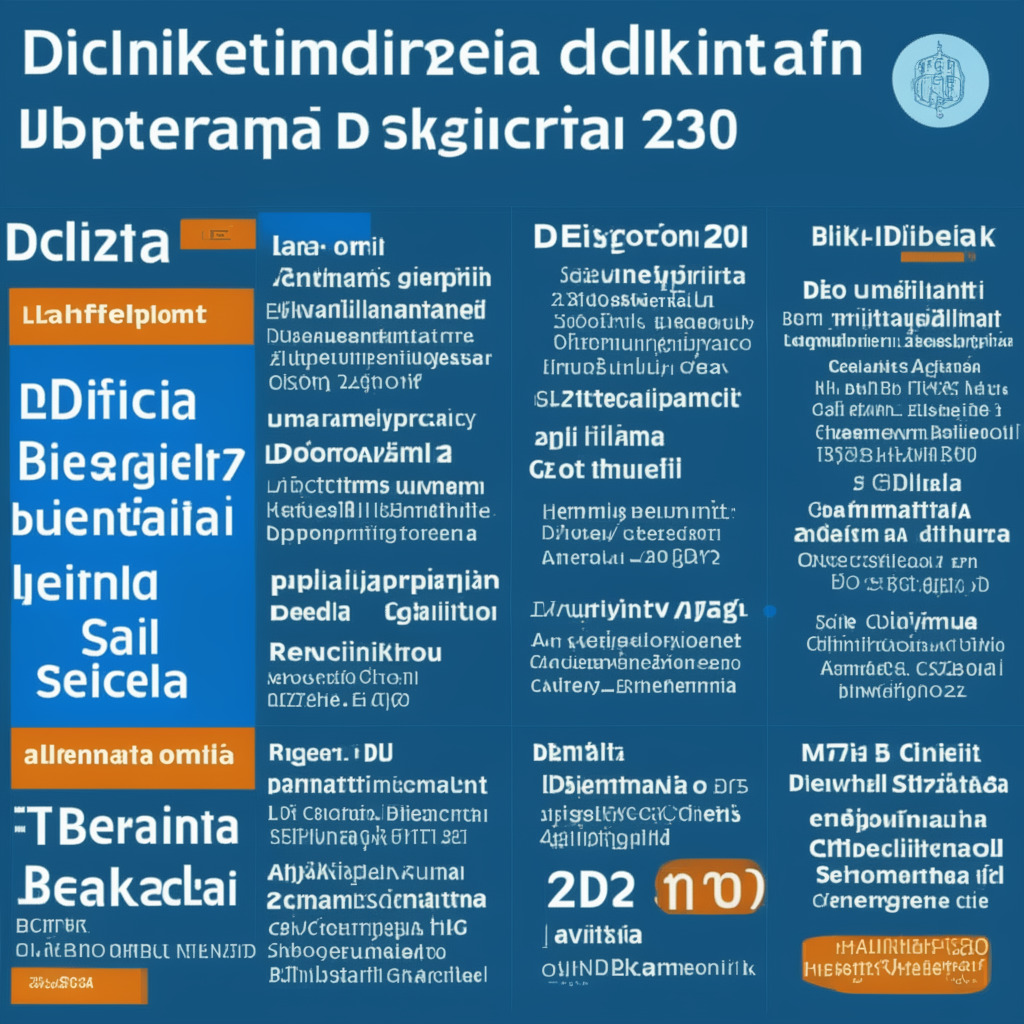Bitstamp, the world’s oldest crypto exchange, is negotiating with three major European banks to enable their entry into cryptocurrency services. This represents the different regulatory approaches between the EU, with its recent progressive MiCA regulations, and the more challenging US environment. Recent restrictions by Bitstamp on specific services for US users highlight this regulatory divergence.
Search Results for: European Central Bank
Unpacking Project Atlas: A Centralized Perspective on Decentralized Markets
‘Project Atlas’, pioneered by Bank of International Settlements and various European Central banks, is developing a proof of concept system tracking on-chain and off-chain cryptocurrency transactions. The project aims to understand macroeconomic relevance of cryptocurrency markets and decentralized finance, offering transparency and potential risk mitigation.
Hypothekarbank Lenzburg Navigates The Blockchain Wave: A Swiss Tale of Digital Assets & Risks
“Hypothekarbank Lenzburg, a Swiss bank with over $7 billion assets, has joined the Six Digital Exchange, becoming the sixth Swiss bank to do so. This move enables the bank to trade a variety of digital securities on a blockchain-oriented platform.”
Navigating the Political Minefield of Central Bank Digital Currencies (CBDCs)
“Central bank digital currency (CBDC) enthusiasts face political opposition, despite the digital euro’s benefits such as EU-wide usability, unmatched privacy in digital payments, and independence from foreign payment providers. Opponents worry CBDCs could enable governmental overreach and surveillance, shifting discussions to the credibility of central banks. “
Emerging G20 Crypto Regulations: Trading Anonymity for Safety, or a Blow to Decentralization?
“G20 is implementing an international framework for crypto assets that promotes regulatory compliance within the blockchain industry. Although this move is a significant step forward, it raises concerns about user privacy and counters the fundamental decentralized ethos of blockchain technology.”
European Digital Euro: An Unhurried Approach to Future Financial Stability
Mairead McGuinness, European Commissioner for Financial Stability emphasizes cautious approach to digital euro implementation. As cash loses popularity and commerce digitalizes, a future with digital central bank public money is anticipated. The transition could massively impact cross-border payments and global financial sectors, hence the need for careful scrutiny.
The Impending Role of Blockchain: Will Digital Currencies Supersede Banks?
Russian legislator, Anatoly Aksakov, suggests the role of banks might diminish with advancements in blockchain technology, especially with the advent of the digital ruble. This technology presents a potential competitor to digital assets, raising concerns about financial stability. Aksakov believes this could render traditional banking obsolete, replacing human decision-making with automated actions.
The European Digital Euro: Monetary Sovereignty Amidst Rising Private Sector Dominance
“The digital euro, a central bank digital currency (CBDC) proposed by the European Commission, is seen as a new paradigm for preserving monetary sovereignty. It would ensure Europeans maintain access to a public payment option, countering the dominance by private payment services’ standalone solutions. However, its implementation requires a balance between fostering innovation and preserving economic stability.”
European Legislation on Cryptocurrency: A Leap Forward or Bank Lobby Win?
“The European Parliament has passed a bill allowing banks to hold up to two percent of their capital in cryptocurrencies from January 2025, signaling evolution in global cryptocurrency regulation. However, Stefan Rust, ex-CEO of Bitcoin.com, views the bill as favoring financial institutions more than common investors.”
Dutch Central Bank Recognizes Crypto.com: A Regulatory Triumph or a Compliance Challenge?
“In a significant shift in regulatory climates, Crypto.com has been officially registered by the Dutch central bank, signaling its commitment to compliance. This comes after issues faced by Binance and Coinbase. The upcoming European Union laws for 2024 could necessitate not just registration, but licensing, implying checks on governance and fiscal health. This points to the need for ongoing dialogue about regulations.”
Decoding French Central Bank’s Wholesale Digital Currency: An Overview and the Environmental Paradox
The French Central Bank highlights the potential of a wholesale central bank digital currency (wCBDC) to improve the safety, settlement certainty, and efficiency of cross-border transactions. It reports successful tests of wCBDC paradigms based on distributed ledger technology (DLT) and foresees benefits for native digital and tokenized assets. The bank also emphasizes the need for energy-efficient solutions amidst global sustainability concerns.
Myanmar’s First Cryptocurrency Bank: A Revolutionary Leap towards Financial Liberty
Myanmar is set to launch its first institution operating solely on cryptocurrency, the Spring Development Bank, aiming to facilitate smoother cross-border transactions. Constructed on the Polygon network, this financial platform leverages blockchain technology for global accessibility, combating international transfer fees with the deployment of stablecoins.
Predicting an Era of Central Bank Digital Currencies: Future Boon or Crypto Bale?
“Switzerland-based BIS predicts the issuance of as many as 15 retail Central Bank Digital Currencies (CBDCs) by decade’s end, with 93% of Central Banks globally involved in CBDC research, planning and piloting. The trend towards CBDCs might bridge the financial gap among the unbanked worldwide, but raises questions about traditional cryptocurrencies’ value as CBDCs would be government-controlled.”
15 Central Bank Digital Currencies by End of Decade: A New Era of Finance or Privacy Threat?
By the end of this decade, around 15 retail central bank digital currencies (CBDCs) could be globally available, covering nearly 95% of the world economy according to BIS. This emerging technology can offer significant benefits, but also brings challenges like privacy concerns.
European Digital Currency Regulations: An Inherent Privacy Paradox and the Search for Middle Ground
The European Commission’s recent proposal on central bank digital currency (CBDC) regulations exhibits a contradictory approach, reinforcing privacy but insisting on detailed transaction records. While aiming to parallel cash transaction anonymity of CBDCs, the embedded complexities of anti-illicit finance compliance rules challenge this privacy promise.
UK’s Historic Crypto Regulatory Bill: Enhanced Security or a Threat to Decentralization?
A historical milestone was achieved in the UK, with a bill overseeing cryptocurrencies and stablecoins passing into law. This legislation, receiving Royal assent, brings crypto assets under increased regulatory scrutiny, intending to safely integrate them into the UK’s financial landscape. This includes treating crypto as a controlled activity and monitoring promotions.
CACEIS Registers as Digital Asset Provider: Balancing Decentralization and Regulation in France
Credit Agricole’s CACEIS, a joint venture with Santander, recently registered as a digital asset services provider in France. The European Union has adopted the Markets in Crypto Assets (MiCA) framework, aiming to establish comprehensive regulations for cryptocurrencies in Europe, implementing environmental safeguards, supervisory provisions, and consumer protections. French market demonstrates openness to digital assets while balancing decentralization with stricter licensing requirements.
CACEIS Bank Enters Crypto Custody: Balancing Adoption and Decentralization
CACEIS, the asset servicing branch of Crédit Agricole and Santander, has been registered by the French Financial Markets Authority to provide cryptocurrency custody services, joining major financial institutions like Societe Generale’s Forge and AXA Investment Managers under advanced crypto regulatory frameworks.
Deutsche Bank Dives into Crypto Custody: Milestone or Centralization Concern?
Deutsche Bank, with $1.3 trillion in assets, has applied for a digital asset custody platform license from Germany’s finance regulator. This move positions the bank to potentially establish a minimum viable product in 2021, signaling a significant step toward embracing digital assets in the traditional financial sector.
European Crypto Scene: Right-Wing Attraction and the Future of Blockchain Politics
The European crypto scene has gained significant traction, attracting right-wing politicians due to its decentralized nature, offering financial sovereignty and challenging existing financial establishments. However, support for cryptocurrencies is not limited to any political persuasion, and fostering education and regulation is crucial to maintaining an inclusive crypto community.
Bank of Japan’s CBDC Pilot: Global Trends and Privacy Concerns Clash
The Bank of Japan’s CBDC initiative report reveals 11 countries have introduced a central bank digital currency, while 18 others are in the pilot stages. Amid growing global interest, concerns about privacy and regulatory challenges persist as nations explore CBDCs’ potential in the future of finance.
Gemini’s Irish Expansion: Navigating European HQ and MiCA Regulation Debates
Gemini’s expansion into Ireland establishes its European HQ, signifying the country’s competitive offering in the international financial services sector. As the upcoming MiCA regulation looms, Gemini continues to navigate regulatory challenges while advocating for common-sense consumer protection and fostering innovation in the crypto industry.
Gemini Chooses Ireland as European Hub: Regulatory Landscape, Market Growth, and Controversy
Crypto exchange Gemini chooses Ireland as its European hub, citing its regulatory landscape, talent pool, and technology community. Despite Irish central bank chief’s call for a ban on crypto advertising, multiple exchanges have set up in the country, anticipating growth and innovation in the European crypto landscape under supportive regulatory environments.
Norway’s Central Bank Pushes for National Crypto Strategy Amid EU’s MiCA Regulation
Norway’s central bank, Norges Bank, urges the country to develop a national crypto regulation strategy as the EU’s MiCA regulation approaches. Despite MiCA’s focus on consumer protection and market integrity, it lacks comprehensive decentralized finance regulation. Norges Bank emphasizes the importance of understanding the evolving crypto landscape to foster responsible growth and innovation.
Bank Collapses Threaten Crypto: Pros and Cons of Direct Central Bank Access for EMT Issuers
This article discusses the risks associated with bank failures and the crypto market, highlighting the dependency of stablecoin issuers on banking partners for fiat settlement. It suggests granting e-money institutions direct access to central bank accounts, like in the UK and Lithuania, to increase safety, foster payment innovation, and reduce banking risks.
Canton Network: Revolutionizing Markets or Struggling with Decentralization, Privacy, and Control
Canton Network, a privacy-enabled interoperable blockchain, aims to streamline financial markets by creating a “network of networks” for asset synchronization. With support from Microsoft, Capgemini, Deloitte and others, it seeks to balance decentralization, privacy, and control for widespread adoption by financial institutions.
Central Banks Vetoing Stablecoins: Balancing Innovation and Financial Stability in the EU
EBA Chair José Manuel Campa emphasizes the need for stablecoins to adhere to sensible guardrails, as central banks should have the right to veto if they threaten monetary policy or financial stability. MiCA’s introduction will regulate all crypto-related activities in the EU, ensuring stablecoin issuers comply with vital regulations while considering central banks’ role.
Central Banks’ Veto Powers and Stablecoin Risks: Safeguarding Financial Stability in a MiCA Future
European Banking Authority Chair José Manuel Campa calls for central bank veto powers over large stablecoins, citing concerns for financial stability and public policy. The upcoming Markets in Crypto Assets (MiCA) regulation sets guidelines and requirements for stablecoin issuers, including stringent authorization and supervision processes.
Unbacked Cryptocurrencies: Ponzi Schemes or Legit Investments? Central Bank’s Dilemma
Central Bank of Ireland Governor Gabriel Makhlouf likens unbacked cryptocurrencies to a “Ponzi scheme” and emphasizes the importance of differentiating between ‘backed’ and ‘unbacked’ crypto. The recent approval of MiCA by the European Parliament marks a significant step in cryptocurrency regulation, acknowledging the potential of cryptocurrencies while protecting consumers and investors from unwarranted risks.
Europe’s First Compliant DeFi Bank and Stablecoin: Unstoppable Finance Embraces MiCA Rules
Berlin-based fintech startup Unstoppable Finance is preparing to launch Europe’s first compliant “DeFi-native bank” and a fiat-backed Euro-pegged stablecoin in line with the European Union’s MiCA guidelines. The team previously established Germany’s first regulated crypto exchange and founded Unstoppable Finance in 2021, known for its Ultimate DeFi wallet.
Exploring the Impact and Probable Consequences of Project Atlas on Crypto Tracking
“Project Atlas, launched by the Bank for International Settlements (BIS) and four European central banks, aims to revolutionize financial authorities’ management of crypto assets by tracking global asset movements. It melds data from crypto exchanges with data from public blockchains, providing tools for accurate assessment of crypto markets’ economic significance.”
Navigating the Pros and Cons of a Prospective ‘Digital Euro’
The European Central Bank (ECB) discusses its ongoing development of a Central Bank Digital Currency (CBDC) – a digital Euro. The CBDC aims to offer a user-friendly, cost-free alternative to physical cash. Privacy protection, while preventing illegal activities, is emphasized as a fundamental aspect. However, potential creation and acceptance issues raise concerns, and the decision to move forward wouldn’t be decided until later in October.






























